The ignition coils are part of the ignition system in Audi SQ8, responsible for amplifying the relatively low battery voltage from 12V to a high voltage of tens of thousands of volts for the spark plugs. Driving your SQ8 with bad ignition coils can damage the engine or the catalytic converter, so you must act urgently to avoid more expensive repairs.

The most common signs of bad ignition coils in Audi SQ8 are engine hesitation when accelerating or loss of power, rough idle, misfires, excessive fuel consumption, check engine light illuminates, and sometimes hard starting. In worst case scenario, if the ignition coils are in really bad condition, the engine will not start.
Symptoms
Check engine light illuminates due to misfires
When an ignition coil start to fail or has failed in your SQ8, it will cause the engine to misfire and the check engine light may illuminate in the instrument cluster. To perform further diagnostics, you will need to connect an OBD2 scanner to your vehicle. If you see any error code from P0300 to P0312, it indicates that there are misfires in the engine. However, it can happen that there are no error codes. In case of doubt, check the condition of the ignition coils and replace them if found defective.
Poor acceleration
If the ignition coils are not working properly, the engine will lose power. When you press the gas pedal in your SQ8, the vehicle may hesitate to accelerate and it will take longer to reach your desired speed.
Rough idle
Another indication of bad ignition coils in Audi SQ8 is rough idle. The engine will not run smooth when idling, and you may also feel vibrations in the cabin.
Poor fuel economy
Excessive fuel consumption is a common sign of bad ignition coils or spark plugs in SQ8. If your vehicle is getting significantly lower gas mileage than usual, its time to inspect the condition of the ignition coils and spark plugs.
Hard starting
When the ignition coils go bad, it is going to take longer for the engine to turn over and start. The ignition system in your SQ8 will have to work a lot harder to be able to ignite the air/fuel mixture in the combustion chambers.
No start
Your SQ8 may not start if most of the ignition coils have failed, as the spark plugs will not produce proper sparks due to insufficient ignition energy.
Can you repair a bad ignition coil in SQ8?
A faulty ignition coil cannot be repaired; it must be replaced with a new one. However, in some cases, if the ignition coil has been contaminated due to an oil leak in the spark plug tube/well and the end of ignition coil boot has not become mushy, you may be able to restore its functionality by cleaning it with an electronic cleaner or MAF sensor cleaner. Nevertheless, If you see corrosion or rust on any ignition coil of your SQ8, it must be replaced.
Recommended video
How to check for a bad ignition coil in Audi SQ8?
The fastest and easiest way to check for a bad ignition coil in SQ8 that has check engine light on for misfire is to swap the ignition coil on the misfiring cylinder with another coil.
- Plug a scan tool to the OBD2 port in your SQ8.
- Read the error code, for example if it says P0303, it means the cylinder number 3 is experiencing misfires.
- Turn off your SQ8 and let the engine cool down to prevent any burn injury.
- Remove the ignition coil from cylinder 3 and swap it with any other cylinder, for example cylinder 2.
Caution: Do not swap the spark plug wires/connectors, only the ignition coils. Unplug the electrical connectors before swapping and then reconnect after the swap. - Start your SQ8 and read the error codes with a scan tool.
- If it shows error code P0302 which indicates a misfire on cylinder number 2 and there are no misfires on cylinder number 3, it means that the ignition coil is defective and should be replaced.
Note: This method only works on vehicles with coil-on-plug (COP) type ignition coils, and will not work on coil packs.
Can I replace just one ignition coil?
Yes, you can replace just the defective ignition coil in your SQ8. However, as a general rule, it is recommended to replace all the ignition coils at once as a preventative measure. This is because when one coil fails, another isn’t too far behind, especially if the vehicle has racked up over 100,000 miles.
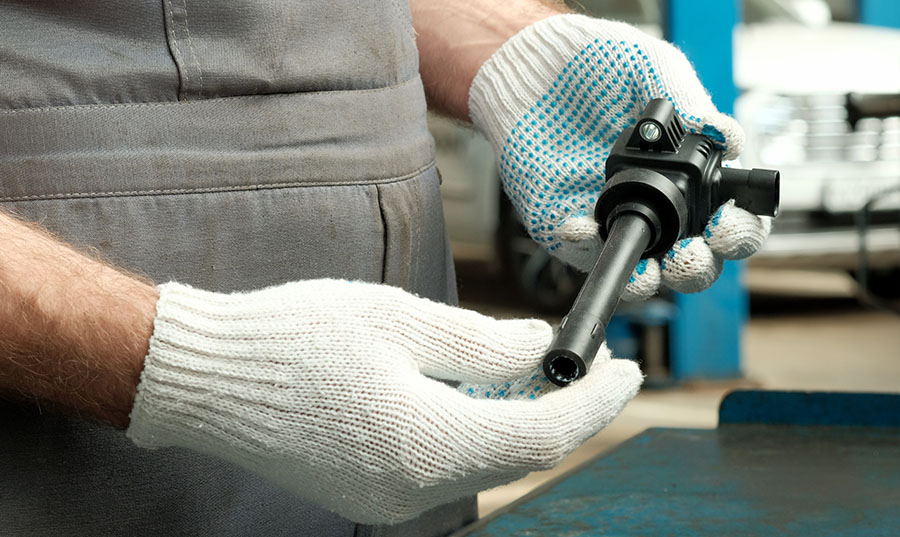
If your vehicle is equipped with coil pack in which a group of ignition coils are physically connected together, you will have to replace the whole pack.
What causes ignition coils to go bad in Audi SQ8?
Ignition coils are subject to wear and tear under normal driving conditions, and will fail eventually, which happens mostly around 100,000 miles mark. Ignition coils can fail prematurely in SQ8 for a variety of reasons including overheating, vibration, moisture intrusion, engine oil leak, or issues with other components of the ignition system, such as bad spark plugs can cause a coil to output higher voltage than normal, significantly reducing its operating life.
Oil leak in spark plug wells
An oil leak in the spark plug tube can hinder the normal operation of the ignition coil in Audi SQ8, cause the engine to misfire, and can even damage the coil. This usually happens due to a leak in the spark plug tube seal in the valve cover. Replacing these seals mostly fixes the leak.
Rodent damage or faulty connector/wires
If bite marks are discovered under the hood, there is a high probability that a rodent has let off steam in the engine compartment of your SQ8. Then it is important to carefully examine all the cables and hoses for damage, including electrical wires and connectors for the ignition coils.
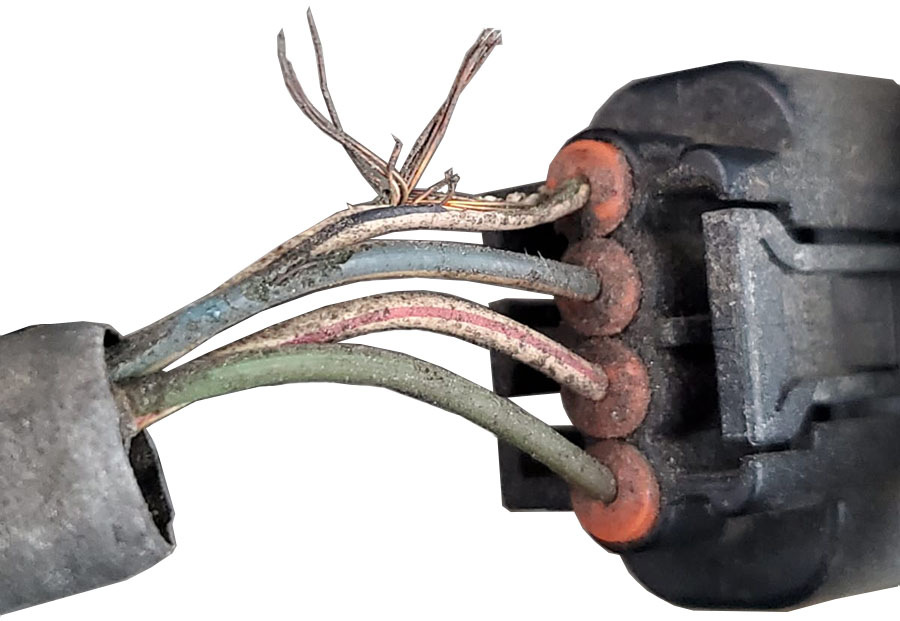
When the electrical wires or the connector for the ignition coil goes bad, you may see an error code between P0350 to P0362 when you hook up a code scanner tool, which indicates an ignition coil circuit malfunction.
Blown fuse
The ignition coils in Audi SQ8 needs electricity to work. In case of a faulty fuse, the circuit is interrupted and the coils will not fire. Check the owners manual or the fuse box cover of your vehicle to find the exact location of the fuse for the coils. If the fuse is blown, replace it with a new one with the specified amp rating.
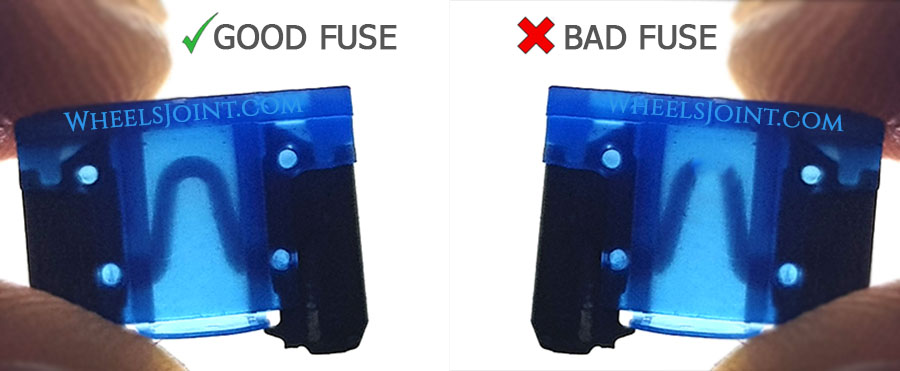
To check the fuse, pull it out of the fuse box using a fuse puller or needle nose plier and hold it against the light. If the metal strip is broken in the middle, the fuse has blown. You must replace it with one of the same amperage and therefore the same color. It does not matter in which direction you insert the fuse.
Does the ignition coil order matter?
When replacing ignition coils in your SQ8, it does not matter which order the coils go in or if they get switched around. But what does matter is the order of spark plug wires or connectors; with the help of the labels on the connectors, make sure each connector is hooked up to its matched cylinder. Connecting ignition coil wires in the wrong order can affect the performance of the engine or prevent it from starting, and can even result in engine damage. Mostly, due to the fixed arrangement of the connectors and wires, it is not possible to swap the connectors, even by mistake.
Can you drive SQ8 with a bad ignition coil?
It is possible to drive your Audi SQ8 with a bad ignition coil, but not recommended – as it can damage other components in your vehicle.
Spark plug fouling
A fault in an ignition coil can cause misfires due to poor sparking which can foul the related spark plugs.
Catalytic converter failure
If you continue driving your SQ8 with faulty ignition coils for extended period of time, it can cause total meltdown of the catalytic converter. Since a bad ignition coil cause the engine to misfire, any unburnt fuel that escapes from the combustion chamber will ignite inside the catalytic converter which will overheat it. Repeated overheating can melt the internal structures and will eventually clog the catalytic converter, which will then need to be replaced at a high cost.
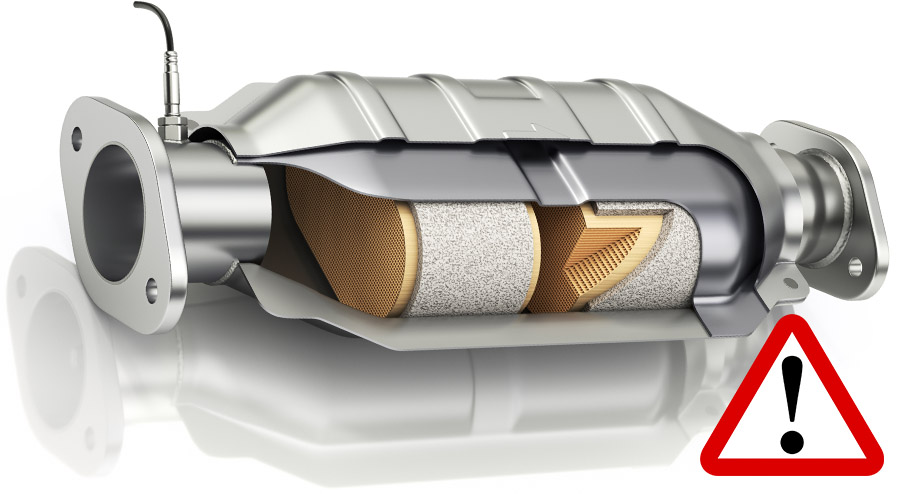
Will a bad ignition coil throw a code?
A faulty ignition coil can cause an engine to misfire, when this happens you may see an error code from P0300 to P0312 depending on which cylinder is experiencing misfires. Additionally, you may see error codes from P0350 to P0362, which indicates a circuit malfunction e.g. broken wires or faulty connector.
What would cause an ignition coil not to fire?
If the ignition coils are not firing properly in SQ8, it can be due to a variety of reasons including defective ignition coils, malfunctioning crankshaft position sensor, bad wire in primary circuit, bad electrical connector, or faulty ECM/PCM.
Should I replace spark plugs with ignition coils?
It is a common practice to replace the spark plugs when replacing ignition coils in SQ8, especially when the spark plugs have been used for some time. Worn spark plugs can cause the ignition coils to work harder, producing higher voltage than normal, which significantly reduces its operating life.
Do better ignition coils increase horsepower?
Simple answer is no, unless the existing ones in SQ8 are defective. Aftermarket ignition coils installed in a stock engine do not increase horsepower, or improve fuel economy, or make the engine run any smoother.
Use OBD2 scanner for diagnosis
Since Audi SQ8 is equipped with on-board diagnostics (OBD), a fault diagnosis can provide initial indications of where the malfunction is located.
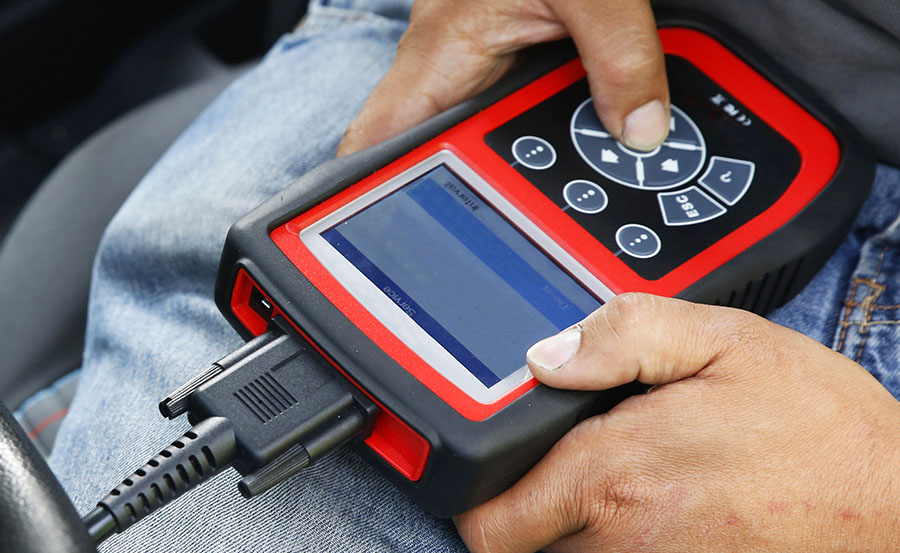
To begin troubleshooting, you must first connect the diagnostic tool to your SQ8. The OBDII connector is usually located under the dashboard. With the tool connected, turn on the ignition. Most diagnostic devices then ask for some information about the vehicle. It is important that you enter this 100% correctly, otherwise the result of the search may be inaccurate. In addition to the vehicle make, model, and engine type, you usually also have to type in the Vehicle Identification Number (VIN). Since some OBD codes are manufacturer-specific, the scanner will be able to give you more accurate information if you enter more details about your SQ8.
Conclusion
If you see noticeable loss of performance or engine hesitation with high fuel consumption in your Audi SQ8, you should definitely check the ignition system of your vehicle including spark plugs, ignition coils and their connectors/wires.
In any case, it is advisable for laypersons to visit a workshop. A professional mechanic can swiftly diagnose the problem for you.


